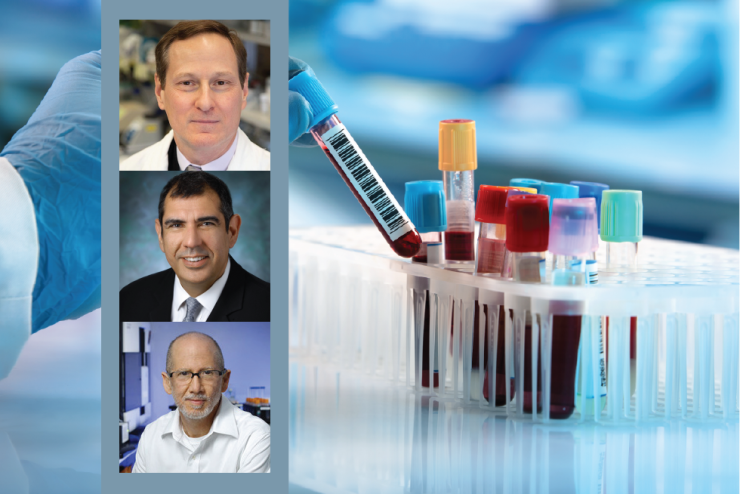
Johns Hopkins researchers Nickolas Papadopoulos, Ken Kinzler and Bert Vogelstein have spent their careers working on ways not just to treat cancer but to detect it before it becomes a threat. The goal: a blood test for the earlier detection of cancer incorporated into routine medical care. Their dream is closer to reality thanks in part to a $2.15 billion acquisition of their company, Thrive Earlier Detection Corp., one year ago by Exact Sciences Corp., a global leader in cancer-detection testing.
The heart of the researchers’ work is the liquid biopsy, a test done on a blood sample to look for signals derived from cancer cells circulating in the blood. In 2011, they invented SafeSeqS, a next-generation gene sequencing technology that simultaneously and individually analyzed millions of DNA molecules to identify mutations in the bloodstream more accurately than other methods.
Two years later, SafeSeqS was incorporated into a pilot study of their liquid biopsy test, which used cervical fluid obtained during routine Pap tests to detect endometrial and ovarian cancer. The “PapGene” test accurately detected all 24 endometrial cancers and nine of 22 ovarian cancers in the study. In 2018, the researchers reported that PapSEEK, the screening test, was nearly 99% specific for cancer and detected 81% of endometrial cancers and 33% of ovarian cancers in a study of 2,000 samples from nearly 1,700 women.
Click here to more via JHU.
